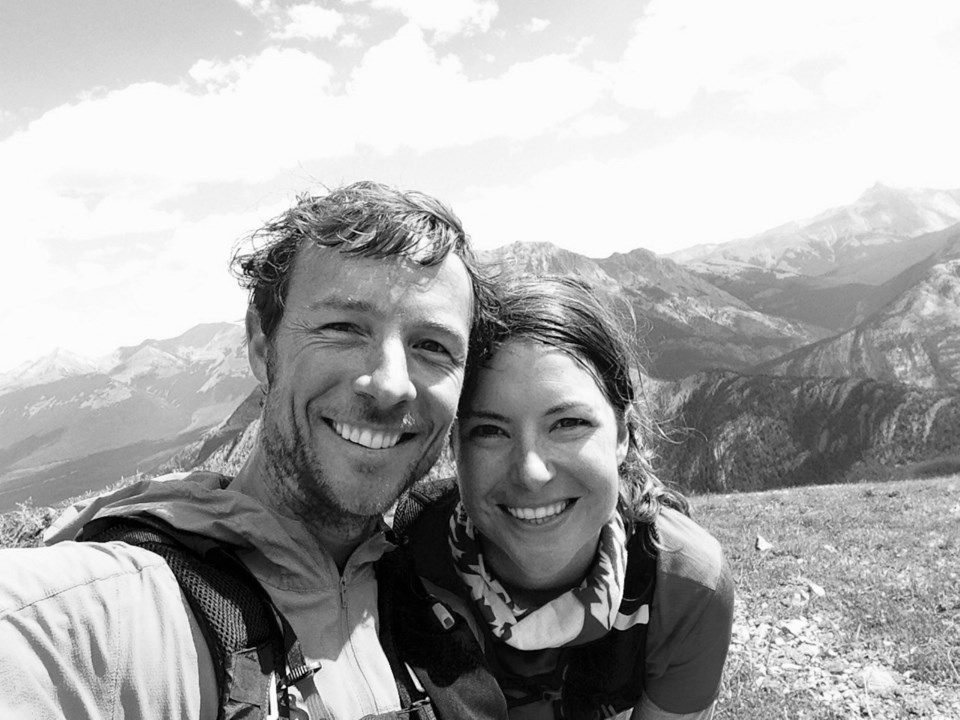The Sea to Sky Corridor is full of peaks to climb, pow to shred and vistas to reach.
But for all its beauty, our landscape doesn't just give; sometimes, tragically, it takes.
A unique type of pain and trauma comes from losing someone or witnessing a severe accident in the mountains.
It is for those folks that a new support group is launching in town.
The Squamish Mountain Muskox Chapter will offer monthly gatherings beginning in September for anyone who has experienced loss or trauma in the mountains.
The support group is open to folks from Vancouver through Pemberton.
The aim is to create and foster a healing community that understands mountain trauma.
"It doesn't matter if the accident or trauma happened decades ago or several months ago; if someone feels like they could use peer support, we are open to helping," said Adam Campbell, a peer support and board member of Mountain Muskox who is helping found the Squamish Chapter.
He knows whereof he speaks.
Campbell's wife, 32-year-old Laura Kosakoski, a family physician, died in January 2020 following an avalanche on Mount Hector in Banff National Park.
Campbell was with her at the time of the incident.
He found support in the original Mountain Muskox, which began a couple of years ago in Bow Valley, Alberta, co-founded by mountaineering guide, alpinist and author, Barry Blanchard, among others.
The journey of grief and trauma after a loss in the mountains presents unique challenges, Campbell noted.
"The mountains are beautiful places, and we love them immensely — and they give us so much. But at the same time, they can take in quite a dramatic fashion. And so there's this really weird contradiction that happens. Like, why do you choose to go to these places that are so inviting … [but] can have such a devastating impact on us? And then, we're finding that it was having a broader impact on the community as a whole," said Campbell, who moved to Squamish about a year and a half ago.
Thus, one of the other goals of Mountain Muskox is to educate the broader community about how to best support people going through this type of loss and trauma.
Campbell continues to adventure in the mountains and enjoys it.
“I still connect deeply with Laura when I'm in the mountains,” he said. “It was a place that was really special to us, and luckily I had a very supportive community behind me who helped me go back.”
But he has changed his approach to recreating.
“I am less about the send, per se, than about the overall experience of being there with people,” he said.
The Squamish iteration of the group is open to folks who have been involved in severe incidents in the mountains, who have lost loved ones to them, or who face trauma as a result of their work or volunteering in the backcountry. That includes search and rescue volunteers, ski patrol crews, and so forth.
Campbell is looking for a space to hold the Squamish chapter's anonymous monthly meetings.
The support circles are assisted by a therapist and peer support workers, or mentors, who are people who have gone through the program and suffered mountain loss or trauma.
The circle is central to the idea of the group, which gets its name from the tight circle muskoxen form if there is a threat.
Campbell noted there can still be stigma and discomfort around seeking help for mental health issues.
"One of the barriers and stigmas that we're hoping to bring down is to recognize that those people do suffer often silently. And hopefully, we can provide them a safe and honest space to come and deal with their issues," he said, adding that attendees can come and not stay or can come a few times — whatever works.
"Ideally, people can graduate from it and ... at some point that trauma doesn't hold as strong a control over your life. And you can go back into the community, and hopefully, you go back a better community member after that as well.”
There's an application process to join Mountain Muskox.
More information is available online or by email: [email protected].




